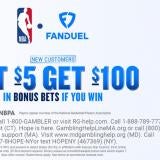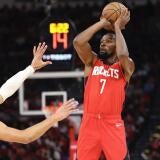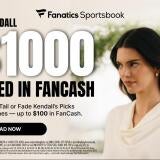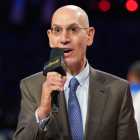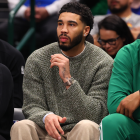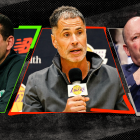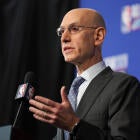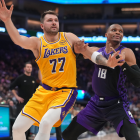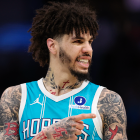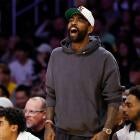Before blasting the Bulls' haul in the Jimmy Butler deal, check the record first
If Chicago was fleeced -- the prevailing thought -- when dealing its star, so were a lot of other clubs
When the Chicago Bulls traded Jimmy Butler (and the rights to the No. 16 overall selection, which turned out to be Justin Patton) to the Minnesota Timberwolves for Zach LaVine, Kris Dunn and the rights to this year's No. 7 overall pick (where they selected Lauri Markkanen) on draft night, the reaction around the league was nearly unanimous.
Chicago got absolutely fleeced.
Through one lens, the criticism is certainly understandable. Dunn had an awful rookie season, LaVine is a non-All-Star who could be in the market for something close to max deal next summer, and Markkanen, a promising 7-foot dead-eye shooter, is far from a sure thing. Ultimately, that's what people think the return should be for star players: A sure thing. They want young, budding All-Stars and/or high lottery picks.
But teams value draft picks -- and the player control that comes with them -- more than ever these days, particularly because the Warriors look like such strong title favorites in the near term. In planning for the future, a top pick locked up for four years on a rookie scale is more enticing than a ready-to-win-now player like Butler for the next two -- even if Butler's deal is team-friendly at less than $20 million per year.
Through that lens, you could argue the Bulls didn't get robbed, but in fact came out with three young, upside guys, two of whom (Dunn and Markkanen) went in the top seven of the past two drafts and are locked up for the next three and four years. That package actually stacks up pretty well against some recent deals when star players were moved. Take a look:
2017: Pacers trade Paul George to Thunder
In return, the Pacers received Victor Oladipo and Domantas Sabonis. Oladipo is a non-All-Star who has four years and $84 million left on his contract. To the casual NBA fan, Sabonis, though he was the No. 11 overall pick in 2016 and is a 6-foot-10 guy who can legitimately stroke it from 3, feels like something of a throw-in. Yes, the Pelicans lacked any leverage whatsoever with George's stated intention to leave next summer, but even accounting for that, It would be tough to argue the Bulls didn't get a far better deal than this for Butler.
2017: Kings trade DeMarcus Cousins to Pelicans
In return, the Kings got 2015 No. 6 overall pick Buddy Hield and the Pelicans' 2017 first-round pick, which ended up being No. 10 overall. Had the Pelicans made the playoffs after acquiring Cousins -- as many thought may be the case -- that pick would not have even been in the lottery. In other words, when making the deal, there was a reasonable chance the KIngs were trading Cousins, a star with multiple years left on his contract, for Hield, a mid-first-round draft pick and some throw-ins.
2016: Thunder trade Serge Ibaka to Magic
Ibaka is not as good as Butler, so the Thunder did not get the same return, netting the No. 11 pick (Sabonis), Oladipo and Ersan Ilyasova. One could argue Oladipo is the rough equivalent to LaVine in the Bulls deal, and Ilyasova is a Sabonis-like afterthought. That means we're comparing the two picks. Chicago got the No. 7 pick for Butler, OKC got the No. 11 pick for Ibaka. Relatively speaking, these are comparable deals.
When looking at most of the recent deals involving lottery picks, they all sound like the one the Bulls got for Butler. Last summer, in a three-team deal, the Hawks wound up netting the No. 12 pick in exchange for Jeff Teague. Butler is a lot better than Teague, and the No. 7 pick is a lot better than No. 12. In 2013, the Sixers received the No. 6 overall pick for Jrue Holiday. Butler is a lot better than Holiday, but again, while the Nos. 6 and 7 picks are comparable, the Bulls also got Dunn and LaVine.
So if these are more or less the recent market comps for the deal the Bulls got, why do people think they came up so short? For one, people are rightly evaluating the actual players in this deal rather than simply their draft slots. They don't think Markkanen is anything to dream on. They're convinced Dunn's rookie year exposed him as wildly overrated. But you know who else struggled as a rookie under Tom Thibodeau? Jimmy Butler, who averaged 8.5 minutes and 2.6 points in the lockout-shortened 2011-12 season.
Be careful before giving up on Dunn, a guy people were dreaming on not long ago. Given enough minutes, he could be a Marcus Smart-type player without much improvement. He's a tough defender who can guard multiple positions; he just hasn't shown consistent shooting or playmaking abilities. He also played only 17 minutes a game last season.
Meanwhile, LaVine is the opposite. He isn't a great defender and could use toughness at that end, but he can flat out score when he has it going, and he's a knock-down shooter -- almost 39 percent from 3 the last two seasons. He may be in line for an outsized contract next season if he bounces back favorably after ACL surgery, but Kentavious Caldwell-Pope thought the same this summer and wound up taking a one-year deal with the Lakers. LaVine is already a pretty good player. Dunn, though he's already 23, and Marakkanen can certainly become the same, if not more.
That doesn't mean Dunn and Markkanen necessarily meet their potential, but if Bulls were intent on moving Butler sooner rather than later, this deal isn't as bad as people are making it out to be. The problem is that occasionally one of these home-run deals involving stars actually nets a king's ransom in return, which makes such outcomes seem realistic, and frustration often is a result of outsized expectations.
When dealing Carmelo Anthony back in 2011, the Nuggets -- who, like the Pacers with George, also had little-to-no leverage with Anthony's well-known desire for New York -- scored a giant haul from the Knicks. Denver got Wilson Chandler, Raymond Felton (who became Andre Miller), Danilo Gallinari, Timofey Mozgov, the Knicks' 2014 first-round pick, the swap rights in 2016 (when they got Jamal Murray), and also landed Kosta Koufos via the Wolves.
That is a huge return, as was the deal the Celtics got in 2013 from the Nets that included four future potential lottery picks, including what became this year's No. 1 overall selection and the one that could be No. 1 next year. But teams have learned from these deals.
In most cases, unless a team has LeBron James and can afford to ignore future ramifications in favor of immediate success (as the Cavs did in 2014, when they traded Andrew Wiggins not long after he was taken No. 1 overall for Kevin Love), they're probably going to cling to draft picks and young, promising players -- which is why Cleveland has struck out in trying to land Phoenix's Josh Jackson or the Knicks' Kristaps Porzingis in potential deals for Kyrie Irving. It's tough to get fair value for a star player in the middle of a contract.
There's a case to be made the Bulls could have played their hand better, or at least slower. Perhaps if the Cavs don't fire GM David Griffin in the middle of negotiations with the Bulls, Chicago ends up with Irving. Maybe if they keep Butler a while, a contender gets antsy around the trade deadline and offers a more favorable return. Then again, maybe they hang onto Butler too long and lose what leverage they did have this summer.
There are a number of ways to look at it, and again, it's not unreasonable to say the Bulls didn't do well on this deal. It's just that it's equally reasonable to say they did.


